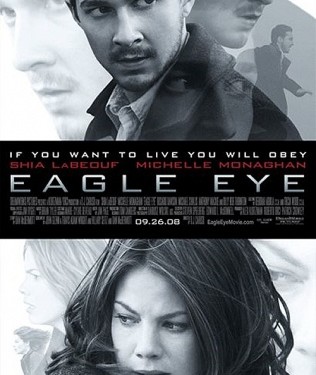You Don’t Mess with the Zohan (Movie Review)
10.7.2008 | By Alex Florez |
Hummus is funny. Scratch that: Hummus is hilarious. It’s got a weird name. It’s gooey. It’s foreign. Like, imagine if someone dipped their eyeglasses in hummus and then licked the hummus off–that’d be pretty hysterical, right? Or what if someone combed hummus into his hair. Or put hummus on the cat. Or used a whole giant tub of hummus to hose down a fire. Or how about this: One rich New York executive asks another what hummus is–because, I mean, how could he possibly know?–and the second guy tells him, “It’s a very tasty diarrhea-like substance.
“How you respond to the preceding paragraph will probably give you a pretty good idea of whether you should see You Don’t Mess With the Zohan, Adam Sandler’s latest exploration of the cinema of adolescence. As is so often the case, Sandler plays a character pulled between the competing poles of masculine aggression and boyish sweetness. (In his most ambitious performance, in Paul Thomas Anderson’s Punch-Drunk Love, this duality was advertised right in the title.) This time, though, the split is literalized–or, rather, professionalized: Sandler’s Zohan is a superhuman Israeli counter-terrorism agent who wants to quit the Army and become–wait for it–a hairdresser.
To this end, he fakes his own death in a confrontation with his Palestinian nemesis, the Phantom (John Turturro), and smuggles himself to New York in a dog carrier, taking his co-travelers’ names as his own, “Scrappy Coco.” Upon arrival, he immediately visits the Paul Mitchell salon looking for a job, pausing briefly to rub his crotch against the glass front door to signal his enthusiasm. Remarkably, he does not find employment there, nor at a black women’s hair boutique, nor at a kids barbershop. He eventually insinuates himself into a salon run by a beautiful Palestinian named Dalia (Emmanuelle Chriqui), where he sets about Warren Beattying his way through the clientele, a la Shampoo. The gag is that rather than offer carnal solace to the likes of Julie Christie, Goldie Hawn, and Lee Grant, he instead boinks a series of grateful sexa-, septua-, octo-, and nonogenarians in the salon’s back room.
As he explains while putting off one eager client, “First, I have to cut and bang Mrs. Greenhouse.”
[youtube id=”ucmnTmYpGhI”]














































